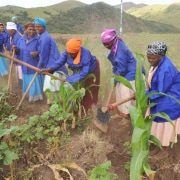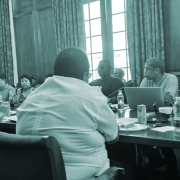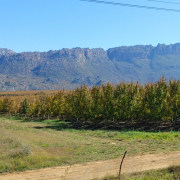|
Getting your Trinity Audio player ready...
|
The failure of farm worker equity schemes (FWES) in South Africa comes under the spotlight in Parliament this week, as a group of civil society partners makes representations in this regard to the Portfolio Committee on Land Reform and Rural Development on 12 November 2025.
The Legal Resources Centre (LRC), Support Centre for Land Change (SCLC), Surplus People Project (SPP), and Corruption Watch (CW) are the four organisations that have been granted an audience in response to their joint petition to the Speaker of the National Assembly in September, calling on Parliament to take decisive action to address this long-standing injustice.
The FWES are a government initiative intended to economically empower farm workers by giving them equity in the farms or agribusinesses in which they were employed, as a means of social upliftment and redress, and of advancing agrarian transformation.
However, the reality has been very different. The failure of these equity schemes has been studied, documented, and exposed for more than a decade, and research by the group between 2023 and 2025 in the Eastern and Western Cape provinces tells the same story. The failures are systemic, and instead of bringing about transformation, they have only reinforced existing patterns of poverty, inequality, and exclusion.
“Farm workers were made symbols of transformation while others cashed in on their names. A betrayal of a promise to those who feed this nation. Real redress demands more than audits or apologies – it demands restitution, transparency, and the political courage to confront those who profited from their labour and loss,” says Brian Adams, CEO at SPP.
Seeking justice
Corruption Watch had previously sent a letter of complaint to the Public Protector on the failure to effectively implement the FWES, as a continuation of the collective efforts of the partners – in particular the SPP and the LRC – who have been at the forefront of farm worker struggles in relation to FWES for the better part of a decade.
These organisations are well-prepared to submit detailed evidence and provide oral evidence before the Portfolio Committee on Land Reform and Rural Development and other relevant committees. For this process to yield real accountability and transformative action, it is imperative that the voices of affected farm workers and civil society organisations be heard directly.
“Farm workers were promised a stake in the land and a share in its profits. Yet too many remain beneficiaries only on paper,” says Sipesihle Mguga, an attorney at the LRC. “Accountability must turn promises into progress. Farm workers were meant to be partners, not spectators. And until their equity delivers tangible benefits, we cannot speak about success.”
FWES were intended to uplift and improve the lives of farm workers but in reality, most farm workers were further impoverished and never received any direct benefit, reflects Patrick Sambo, SCLC executive director.
“The subsidies and investments meant for them ended up enriching the majority shareholders. Tragically, some farm workers passed away in poverty, having never received a cent from the FWES. Government must provide a full and transparent account to both the farm workers and taxpayers regarding what transpired under these schemes,” he concludes.
Fighting land corruption
The importance of land issues, and particularly the link to corruption and maladministration, has been a critical focus area for CW through its work with Transparency International’s Land and Corruption in Africa (LCA) project which tackles land corruption risks and injustices in sub-Saharan Africa. The organisation completed LCA phase one between 2015 and 2019 and is winding up phase two, which started in 2021 and will finish this year.
CW’s body of work in this area includes two research reports (2019 and 2023) and a five-part podcast series, the latter compiled from information and voice recordings of affected community members, government representatives, and farmers, all collected during the team’s research field trip to the Western Cape in 2023.
“The seventh Parliament now has an opportunity to fulfil its critical oversight role and stand with a marginalised people,” says Melusi Ncala, senior researcher and LCA project lead at CW. “Families have been wronged, and communities remain destabilised due to corrupt and criminal actions by those seeking to subvert a social justice land programme intended to redress a crime against humanity committed under the colonial and apartheid regimes.”
The opportunity to make representations to Parliament is a practical and powerful way for the public to actively participate in governance and importantly, to directly influence the legislative process, hold the government accountable, and ensure that laws and policies are implemented to address the needs and interests of the people.
Melusi Ncala expresses his views on the FWES in the 2023 opinion piece, Farm worker equity schemes a failure of both government and farm owners.
For media enquiries contact:
Oteng Makgotlwe
Cell: 076 473 8336 E-mail: OtengM@corruptionwatch.org.za






